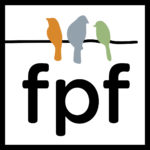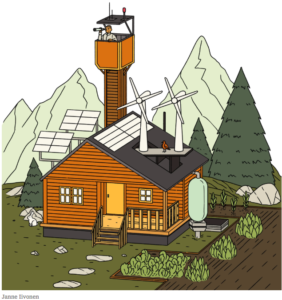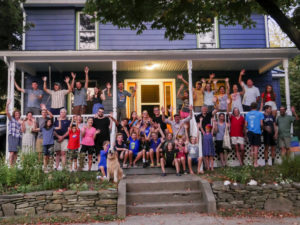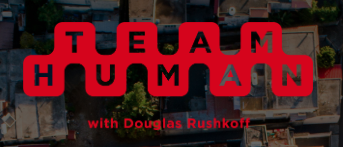Category Archives: social capital
Help More Vermonters Benefit from FPF… Mobile App on the Way!
 Did you know that nearly one-third of low-income Americans don’t have a broadband-connected computer and can only access the internet by mobile phone?
Did you know that nearly one-third of low-income Americans don’t have a broadband-connected computer and can only access the internet by mobile phone?
FPF is committed to making it easy for all Vermonters to participate in their local Front Porch Forum. We’re building a mobile app to make FPF even more inclusive. We need to raise $30,000 by next Tuesday to accomplish this. Please help today:
https://frontporchforum.com/supporting-members
More than 160,000 Vermonters participate on their local FPF daily. With your help, even more will be able to join the conversation.
Please contribute $200, $100, $50, $27 or any amount. Credit card, PayPal or check: https://frontporchforum.com/supporting-members
Front Porch Forum
PO Box 64781
Burlington, VT 05406-4781
FPF is a Vermont business, with a staff of 18, that serves every community in the state. We are not a charity and contributions are not tax deductible. Most of our expenses are covered by ad sales to Vermont businesses, and your Supporting Member contribution helps close the gap. Thank you!
UPDATE: We surpassed our funding goal by our deadline! Thanks so much to the many FPF Supporting Members who chipped in. Stay tuned for news about the FPF mobile app launch coming soon!
Front Porch Forum featured at SXSW next week!
 Are you headed to South by Southwest 2019 in Austin? Be sure to attend this session…
Are you headed to South by Southwest 2019 in Austin? Be sure to attend this session…
FrontPorchForum: Social Impact Thru Connecting Neighbors
March 13, 2019; 2-3 PM
JW Marriott, Salon D
Michael Wood-Lewis, Front Porch Forum
Tom Walsham, TWG
More than 75% of households in most Vermont towns use FrontPorchForum.com to communicate among neighbors and increase civic engagement. Operating since 2006, this locally owned social network has successfully helped neighbors connect and build community by rejecting the Silicon Valley addiction-and-surveillance business model. In this session, we will discuss the challenges of increasing impact while maintaining civility, implications of a sustainable neighbor model, and how the dynamics on FPF might inform better real-world dialogue.
Seating is limited to 500, so don’t be late!
FPF is hiring: Software Developer
 Front Porch Forum is seeking an Intermediate or Senior-level Developer to join our team of 17 Vermont-based staff.
Front Porch Forum is seeking an Intermediate or Senior-level Developer to join our team of 17 Vermont-based staff.
Investing in climate change insurance? Try community resiliency
A recent article in New York Times… 
Climate Change Insurance: Buy Land Somewhere Else
In case global warming makes their homes uninhabitable, some millennials have a Plan B: investing in places like the Catskills, Oregon and Vermont.
Buried among several examples of people who think the answer to large-scale catastrophe is striking out on their own is the following gem…
Bruce Riordan, program director for the Climate Readiness Institute at the University of California Berkeley, cautioned that it isn’t realistic to expect to live in a bubble. “Sure, you can grow your own vegetables, but what about wheat and grains?” he said. “And what happens when you need medical attention?”
Mastering surgery would certainly be a lot harder than learning to grow tomatoes.
A better strategy, Mr. Riordan suggested, would be to find a community that is intelligently preparing for whatever climate change may bring. He equated the situation to what California has done about earthquakes: They can’t be avoided, but we can build safer buildings, get better at predicting them and establish systems to care for vulnerable populations when they occur.
This jibes with Front Porch Forum‘s experience. When disaster strikes, the most resilient communities are those full of neighbors who know each other, know what’s going on, and who have a record of helping each other and accomplishing things together.
Our disconnects in values, relationships and social fabric
danah boyd was quoted on Wired yesterday…
“[W]e have a cultural problem, one that is shaped by disconnects in values, relationships, and social fabric. Our media, our tools, and our politics are being leveraged to help breed polarization by countless actors who can leverage these systems for personal, economic, and ideological gain.”
She went on to state “How do you reknit society? Society is produced by the social connections that are knit together. The stronger those networks, the stronger the society. We have to make a concerted effort to create social ties, social relationships, social networks in the classic sense that allow for strategic bridges across the polis so that people can see themselves as one.”
“Part of what is really collapsing here is that the networks have become too fragmented and too polarized. Technology doesn’t help; it simply magnifies the poles. This is dangerous and cyclical. Polarization leads to distrust and tribalism which leads to more polarization. So for me, the path forward, which requires business and the public sector and civil society working together, is about reconstructing the networks of America.”
In our own small way, this is Front Porch Forum‘s work… helping neighbors connect and build community… reconstructing networks of neighbors across political, class, racial and other boundaries.
Front Porch Forum awarded grant to explore social capital in Vermont
 The Robert Wood Johnson Foundation recently awarded a grant to Front Porch Forum to study how Vermonters use FPF to build community.
The Robert Wood Johnson Foundation recently awarded a grant to Front Porch Forum to study how Vermonters use FPF to build community.
“When the Foundation approached us to do this work, it was a wonderful surprise and great honor,” said FPF co-founder Michael Wood-Lewis.
A leading national social networking research organization, Network Impact, recently conducted a statewide 20-minute survey of 140,000 FPF members. They garnered 15,000 completed surveys from every corner of Vermont. Results are pending.
Next-door strangers… why helping neighbors connect with each other is vital
If you’re interested in Front Porch Forum’s work, take a look at this new article by Marc J. Dunkelman published by the Institute for Advanced Studies in Culture… Next-Door Strangers: The Crisis of Urban Anonymity…
The British anthropologist Robin Dunbar spent years researching isolated societies, both past and present. He discovered a remarkable similarity across geography and context. Human societies, he found, naturally sort themselves across three distinct levels of intimacy. The first, and most intimate, Dunbar labeled bands. These are the people who sleep together in overnight camps and know one another intimately. They rarely number more than a few dozen together. At the other end of the intimacy spectrum are tribes, groupings that live under the broadest and thinnest common banner. Fellow tribe members may share in certain rituals and traditions, but they rarely know one another personally.
Situated squarely between bands and tribes are what Dunbar termed villages. A village, generally speaking, marks a collection of bands, and groups of villages constitute a tribe. Correspondingly, fellow villagers are rarely as intimate with one another as they are with fellow members of their band, but they are more intimate than they would be with outside members of their tribe. Villagers do not necessarily know one another personally but they are often able to converse about something specific. They’d know if someone’s mother were ill, or if their child had achieved an outstanding feat. Upon seeing one another, their conversation would flow from a common frame of reference.
What held the American community together through its first four migrations was a very specific and shared sociological architecture. Colonial villages, frontier towns, urban tenements, and even some first-ring suburbs were classic examples of Dunbarian villages in that they were suffused by familiar, but non-intimate, relationships. The vicissitudes of ordinary life made it almost inevitable that people who lived near one another would be socially connected. It wasn’t just, as Alexis de Tocqueville wrote in the 1830s, that Americans were unusually likely to join voluntary associations. The demands of democratic government the fact that power flowed up from the grassroots prompted similarly situated strangers to get to know one another in pursuit of the common good.
Today’s reinvigorated cities boast much of what made urban America so vibrant during its heyday. The cultural amenities, the coffeehouse culture, the vast diversity, and even the convenience of public transit have emerged in places for which, in the mid-1970s, conventional wisdom predicted continued decline. But one feature distinguishes today’s urban meccas from those of eras past. The core sociological building block that Jane Jacobs celebrated in The Death and Life of Great American Cities the Dunbarian village instantiated in an urban neighborhood has all but collapsed.
FPF helps neighbors connect and build community. We accomplish that by hosting a statewide network of online neighborhood forums designed specifically to increase social capital among neighbors. About half of Vermont households participate on their local FPF. Learn more here.
About Blog
Ghost of Midnight is an online journal about fostering community within neighborhoods, with a special focus on Front Porch Forum (FPF). My wife, Valerie, and I founded FPF in 2006... read more
Post Categories
- Uncategorized
- PDF2009
- Calendar
- Northeast Kingdom
- podcast
- Peer Rental
- Localization
- Big Tech
- Events
- PDF2007
- Web Traffic
- Google AdSense
- Pay It Forward
- Elections
- berkmansunlight
- Maps
- Video
- Upstate New York
- Coupons
- Wildlife
- Mobile
- Viral Marketing
- Raffle
- Crisis Response
- Donations
- Lost & Found
- Real Estate
- College Students
- Gratitude
- Social Responsibility
- Orton Family Foundation
- Start ups
- Make It Your Own Awards
- Online Civility
- Clay Shirky
- Newspapers
- Humor
- How To Use FPF
- Online Classified Ads
- Peer Reviews
- Best of FPF
- Politics
- Community Management
- Economic Development
- Local Reviews
- Case Foundation
- Borrow and Lend
- Neighborhood Watch
- Good Government
- Small Business Advertising
- Citizen Journalism
- e-Vermont
- Democracy
- Local Search
- Knight Foundation
- Burlington
- MacArthur Fellows
- Civic Engagement
- Social Media
- social capital
- Social Networking
- Vermont
- Neighborhood
- Community Building
- Local Online
- Front Porch Forum
 A story of lost-and-found ended happily when Gary of Montpelier posted on
A story of lost-and-found ended happily when Gary of Montpelier posted on  Team Human is a podcast striving to amplify human connection. Each week they engage in real-time, no-holds-barred discussions with people who are hacking the machine to make it more compatible with human life, and helping redefine what it means to stay human in a digital age.
Team Human is a podcast striving to amplify human connection. Each week they engage in real-time, no-holds-barred discussions with people who are hacking the machine to make it more compatible with human life, and helping redefine what it means to stay human in a digital age. 
